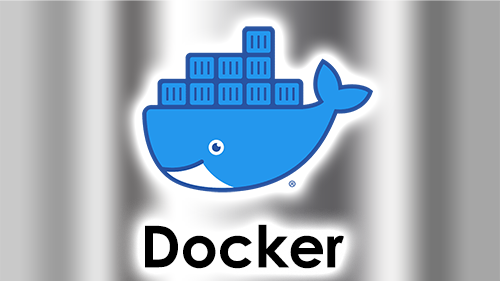Find out the best information on the open source software, Docker. Get the most out of Docker with this step-by-step guide. From basics to best practices, this guide covers everything you need to know about Docker Virtualization Software.
Docker Explained: Video Talkthrough
Docker
Introduction to Docker
Docker is a powerful platform for developing, shipping, and running distributed applications. It is a tool designed to make it easier to create, deploy, and run applications by using containers. Containers allow developers to package an application and its dependencies into a single unit, which can then be run on any system that supports Docker. This makes it possible to run applications in a consistent environment, even if the underlying hardware or operating system is different.
What are Containers?
Containers are a type of virtualization technology that allows multiple isolated applications to run on a single operating system. Each container runs in its own isolated environment, which is separated from the underlying host system and other containers.
Put simply, a Container is like a lightweight VM, with only specific components for running apps.
This makes it possible to run multiple containers on a single system without them interfering with each other. The use of containers helps to reduce the overhead of virtual machines, as multiple containers can share the same operating system and resources.
Advantages of Docker
There are many advantages to using Docker for your applications. Here are just a few:
- Portability: Docker containers can run on any system that supports Docker, making it possible to easily move applications between environments.
- Scalability: Docker containers can be easily scaled up or down as needed, making it simple to handle changes in demand.
- Improved Development Workflow: By using containers, developers can easily test their applications in a controlled environment, which can help to speed up the development process.
- Better Resource Utilization: Docker containers allow multiple applications to run on the same system, which helps to improve resource utilization and reduce the overall cost of running applications.
Getting Started with Docker
Getting started with Docker is straightforward and simple. All you need to get started is a system that supports Docker and an internet connection. The first step is to download and install Docker on your system. Once you have installed Docker, you can start using it to create and run containers for your applications.
Creating Your First Docker Container
To create your first Docker container, you will need to write a Dockerfile. A Dockerfile is a script that describes how to build a Docker container. The Dockerfile contains a series of commands that specify the operating system, application dependencies, and how to run the application. Once you have written your Dockerfile, you can use the Docker build command to create a Docker container.
Deploying Docker Containers
Once you have created your Docker container, you can deploy it to a system that supports Docker. This can be done by using a variety of methods, including using a cloud service like Amazon Web Services or Microsoft Azure, or by using a container orchestration platform like Kubernetes.
Conclusion
In conclusion, Docker is a powerful platform for developing, shipping, and running distributed applications. With its use of containers, Docker makes it possible to run applications in a consistent environment, regardless of the underlying hardware or operating system. Additionally, the use of containers helps to improve resource utilization, speed up the development process, and reduce the overall cost of running applications. With its many advantages, Docker is a great choice for any organization looking to improve the way they develop and deploy applications.
Docker FAQ
- What is Docker and How Does it Work?
- Why Use Docker in Your Development Workflow?
- How to Install and Set Up Docker on Your Machine?
- What are Docker Containers and How Do They Work?
- What is Docker Compose and How to Use it?
- What is Docker Swarm and How to Use it?
- How to Deploy Your Applications with Docker?
- What are Docker Images and How to Create Them?
- How to Debug Docker Containers and Fix Common Issues?
- What are Common Errors in Docker and How to Fix Them?
- How to Secure Your Docker Environment?
- What is Docker Hub and How to Use it?
- How to Manage Your Docker Networks?
- What are Docker Volumes and How to Use Them?
- How to Speed Up Your Docker Builds?
- What are Docker Stacks and How to Deploy Them?
- How to Automate Your Docker Deployment with CI/CD Pipelines?
- What are Best Practices for Docker Image Creation?
- How to Monitor Your Docker Environment?
- What is Docker Machine and How to Use it?
- How to Connect Docker Containers with Networking?
- What are Docker Multi-Stage Builds and How to Use Them?
- How to Troubleshoot Docker Performance Issues?
- What is Docker Ingress Networking and How to Use It?
- How to Create a Docker-Based Microservices Architecture?
- What are Docker Private Registries and How to Use Them?
- How to Scale Your Docker Applications?
- What are Docker Configs and How to Use Them?
- How to Automate Your Docker Deployment with Ansible?
- What are Docker Secrets and How to Use Them?
- How to Integrate Docker with Kubernetes?
- What are Docker Services and How to Use Them?
- How to Use Docker for Testing and Continuous Integration?
- What are Docker Network Drivers and How to Use Them?
- How to Use Docker for Continuous Deployment?
- What are Docker Tasks and How to Use Them?
- How to Use Docker for DevOps and Deployment?
- What are Docker Labels and How to Use Them?
- How to Use Docker for Production Deployment?
- What are Docker Plugins and How to Use Them?
- How to Use Docker for Web Development?
- What are Docker Build Args and How to Use Them?
- How to Use Docker for Database Deployment?
- What are Docker Build Contexts and How to Use Them?
- How to Use Docker for Server Deployment?
- What are Docker Entrypoints and How to Use Them?
- How to Use Docker for Mobile Development?
- What are Docker Healthchecks and How to Use Them?
- How to Use Docker for Distributed Systems?
- What are Docker Platforms and How to Choose the Right One
Images are Derivative Fair Use

